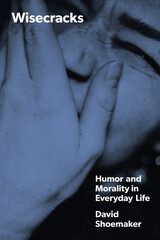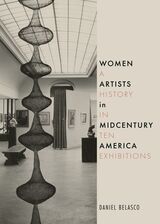
A very short introduction to Roman history.
Florus, born apparently in Africa, lived in Spain and in Rome during Hadrian’s time. He wrote, in succinct rhetorical style, a summary of Roman history (especially wars) in two books in order to show the early greatness and subsequent decline of Roman morals. It is based chiefly on Livy. Florus’ Epitome was perhaps planned to reach his own times, but the extant work ends with Augustus’ reign. Florus provides a useful rapid sketch of Roman military history.
Poetry by Florus is also available in the Loeb Classical Library, in Volume II of Minor Latin Poets (LCL 434).

The foreigner whose style shaped Athens’ greatest orator.
Though he occupies a firm place in the canon of the ten Attic orators, Isaeus seems not to have been an Athenian, but a metic, being a native of Chalcis in Euboea. From passages in his work he is inferred to have lived from about 420 to 350 BC. But no contemporary mentions him, and it is from Dionysius of Halicarnassus that we learn he was the teacher of Demosthenes, a fact confirmed by several unmistakable examples of borrowing from or imitation of him by his great pupil.
Isaeus took no part in politics, but composed speeches for others, particularly in cases of inheritance. While he shares with Lysias the merits of a pure Attic and a lucidity of style, Isaeus is more aggressive and more flexible in his presentation; and in these respects he undoubtedly influenced Demosthenes. We learn of the existence in ancient times of at least fifty orations, but all that has come down to us are eleven speeches on legacy cases and a large fragment of a speech dealing with a claim of citizenship.

A Roman farmer on farming.
Columella (Lucius Iunius Moderatus) of Gades (Cadiz) lived in the reigns of the first emperors to about AD 70. He moved early in life to Italy where he owned farms and lived near Rome. It is probable that he did military service in Syria and Cilicia and that he died at Tarentum.
Columella’s On Agriculture (De re rustica) is the most comprehensive, systematic, and detailed of Roman agricultural works. Book 1 covers choice of farming site; water supply; buildings; staff. 2: Plowing; fertilizing; care of crops. 3–5: Cultivation, grafting, and pruning of fruit trees, vines, and olives. 6: Acquisition, breeding, and rearing of oxen, horses, and mules; veterinary medicine. 7: Sheep, goats, pigs, and dogs. 8: Poultry; fish ponds. 9: Bee-keeping. 10 (in hexameter poetry): Gardening. 11: Duties of the overseer of a farm; calendar for farm work; more on gardening. 12: Duties of the overseer’s wife; manufacture of wines; pickling; preserving. There is also a separate treatise, Trees (De arboribus), on vines and olives and various trees, perhaps part of an otherwise lost work written before On Agriculture.
The Loeb Classical Library edition of Columella is in three volumes.

A Roman farmer on farming.
Columella (Lucius Iunius Moderatus) of Gades (Cadiz) lived in the reigns of the first emperors to about AD 70. He moved early in life to Italy where he owned farms and lived near Rome. It is probable that he did military service in Syria and Cilicia and that he died at Tarentum.
Columella’s On Agriculture (De re rustica) is the most comprehensive, systematic, and detailed of Roman agricultural works. Book 1 covers choice of farming site; water supply; buildings; staff. 2: Plowing; fertilizing; care of crops. 3–5: Cultivation, grafting, and pruning of fruit trees, vines, and olives. 6: Acquisition, breeding, and rearing of oxen, horses, and mules; veterinary medicine. 7: Sheep, goats, pigs, and dogs. 8: Poultry; fish ponds. 9: Bee-keeping. 10 (in hexameter poetry): Gardening. 11: Duties of the overseer of a farm; calendar for farm work; more on gardening. 12: Duties of the overseer’s wife; manufacture of wines; pickling; preserving. There is also a separate treatise, Trees (De arboribus), on vines and olives and various trees, perhaps part of an otherwise lost work written before On Agriculture.
The Loeb Classical Library edition of Columella is in three volumes.

Fallacies, contraries, consistencies.
Aristotle, great Greek philosopher, researcher, reasoner, and writer, born at Stagirus in 384 BC, was the son of a physician. He studied under Plato at Athens and taught there (367–347); subsequently he spent three years at the court of a former pupil in Asia Minor. After some time at Mitylene, in 343–342 he was appointed by King Philip of Macedon to be tutor of his teen-aged son Alexander. After Philip’s death in 336, Aristotle became head of his own school (of “Peripatetics”), the Lyceum at Athens. Because of anti-Macedonian feeling there after Alexander’s death in 323, he withdrew to Chalcis in Euboea, where he died in 322.
Nearly all the works Aristotle prepared for publication are lost; the priceless ones extant are lecture-materials, notes, and memoranda (some are spurious). They can be categorized as follows:
I Practical: Nicomachean Ethics; Great Ethics (Magna Moralia); Eudemian Ethics; Politics; Economics (on the good of the family); On Virtues and Vices.
II Logical: Categories; Analytics (Prior and Posterior); Interpretation; Refutations used by Sophists; Topica.
III Physical: Twenty-six works (some suspect) including astronomy, generation and destruction, the senses, memory, sleep, dreams, life, facts about animals, etc.
IV Metaphysics: on being as being.
V Art: Rhetoric and Poetics.
VI Other works including the Constitution of Athens; more works also of doubtful authorship.
VII Fragments of various works such as dialogues on philosophy and literature; and of treatises on rhetoric, politics, and metaphysics.
The Loeb Classical Library edition of Aristotle is in twenty-three volumes.

Inductive zoology.
Aristotle, great Greek philosopher, researcher, reasoner, and writer, born at Stagirus in 384 BC, was the son of a physician. He studied under Plato at Athens and taught there (367–347); subsequently he spent three years at the court of a former pupil in Asia Minor. After some time at Mitylene, in 343–342 he was appointed by King Philip of Macedon to be tutor of his teen-aged son Alexander. After Philip’s death in 336, Aristotle became head of his own school (of “Peripatetics”), the Lyceum at Athens. Because of anti-Macedonian feeling there after Alexander’s death in 323, he withdrew to Chalcis in Euboea, where he died in 322.
Nearly all the works Aristotle prepared for publication are lost; the priceless ones extant are lecture-materials, notes, and memoranda (some are spurious). They can be categorized as follows:
I Practical: Nicomachean Ethics; Great Ethics (Magna Moralia); Eudemian Ethics; Politics; Economics (on the good of the family); On Virtues and Vices.
II Logical: Categories; Analytics (Prior and Posterior); Interpretation; Refutations used by Sophists; Topica.
III Physical: Twenty-six works (some suspect) including astronomy, generation and destruction, the senses, memory, sleep, dreams, life, facts about animals, etc.
IV Metaphysics: on being as being.
V Art: Rhetoric and Poetics.
VI Other works including the Constitution of Athens; more works also of doubtful authorship.
VII Fragments of various works such as dialogues on philosophy and literature; and of treatises on rhetoric, politics, and metaphysics.
The Loeb Classical Library edition of Aristotle is in twenty-three volumes.

The philosopher’s toolkit.
Aristotle, great Greek philosopher, researcher, reasoner, and writer, born at Stagirus in 384 BC, was the son of a physician. He studied under Plato at Athens and taught there (367–347); subsequently he spent three years at the court of a former pupil in Asia Minor. After some time at Mitylene, in 343–342 he was appointed by King Philip of Macedon to be tutor of his teen-aged son Alexander. After Philip’s death in 336, Aristotle became head of his own school (of “Peripatetics”), the Lyceum at Athens. Because of anti-Macedonian feeling there after Alexander’s death in 323, he withdrew to Chalcis in Euboea, where he died in 322.
Nearly all the works Aristotle prepared for publication are lost; the priceless ones extant are lecture-materials, notes, and memoranda (some are spurious). They can be categorized as follows:
I Practical: Nicomachean Ethics; Great Ethics (Magna Moralia); Eudemian Ethics; Politics; Economics (on the good of the family); On Virtues and Vices.
II Logical: Categories; Analytics (Prior and Posterior); Interpretation; Refutations used by Sophists; Topica.
III Physical: Twenty-six works (some suspect) including astronomy, generation and destruction, the senses, memory, sleep, dreams, life, facts about animals, etc.
IV Metaphysics: on being as being.
V Art: Rhetoric and Poetics.
VI Other works including the Constitution of Athens; more works also of doubtful authorship.
VII Fragments of various works such as dialogues on philosophy and literature; and of treatises on rhetoric, politics, and metaphysics.
The Loeb Classical Library edition of Aristotle is in twenty-three volumes.
READERS
Browse our collection.
PUBLISHERS
See BiblioVault's publisher services.
STUDENT SERVICES
Files for college accessibility offices.
UChicago Accessibility Resources
home | accessibility | search | about | contact us
BiblioVault ® 2001 - 2024
The University of Chicago Press









